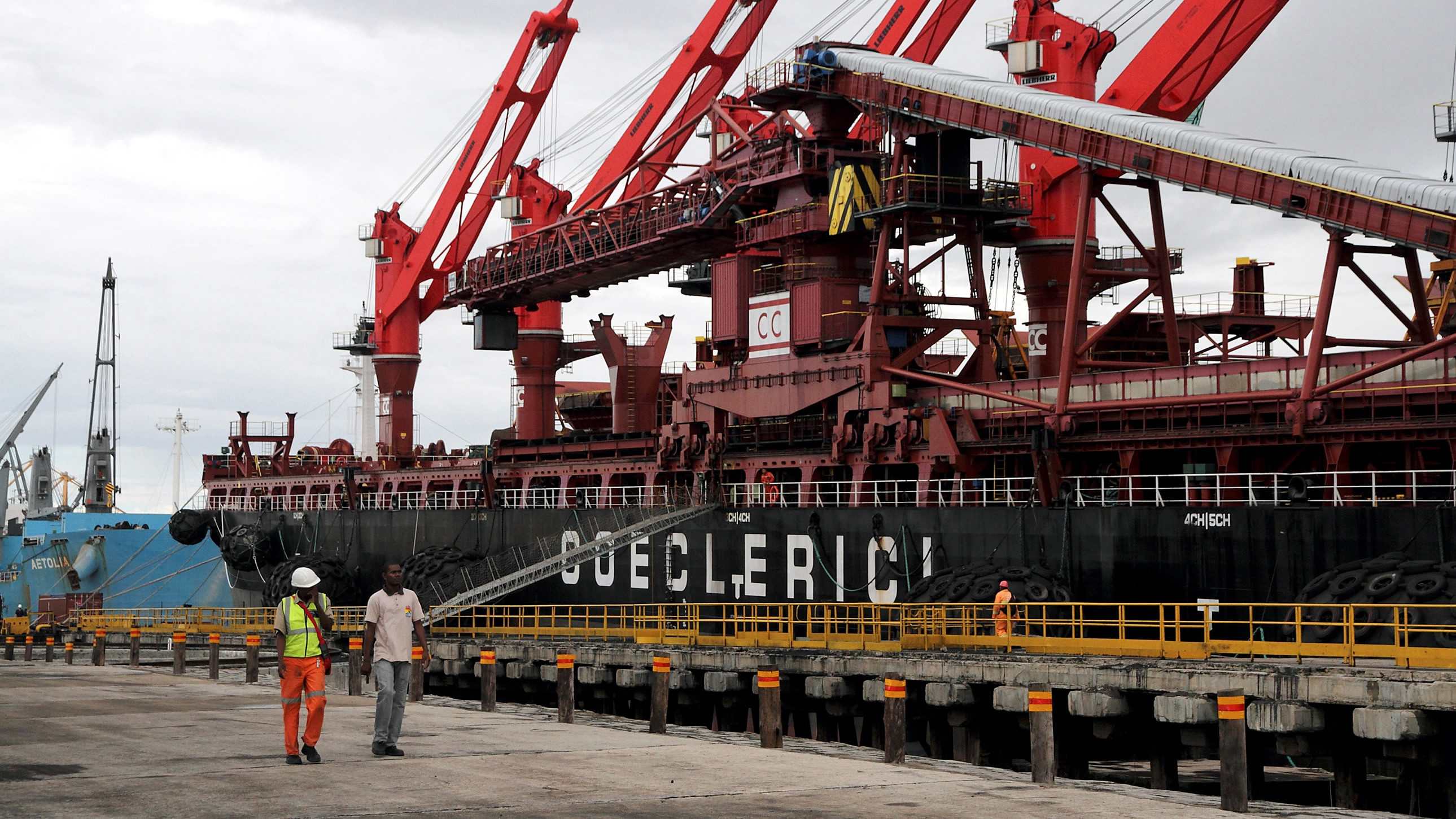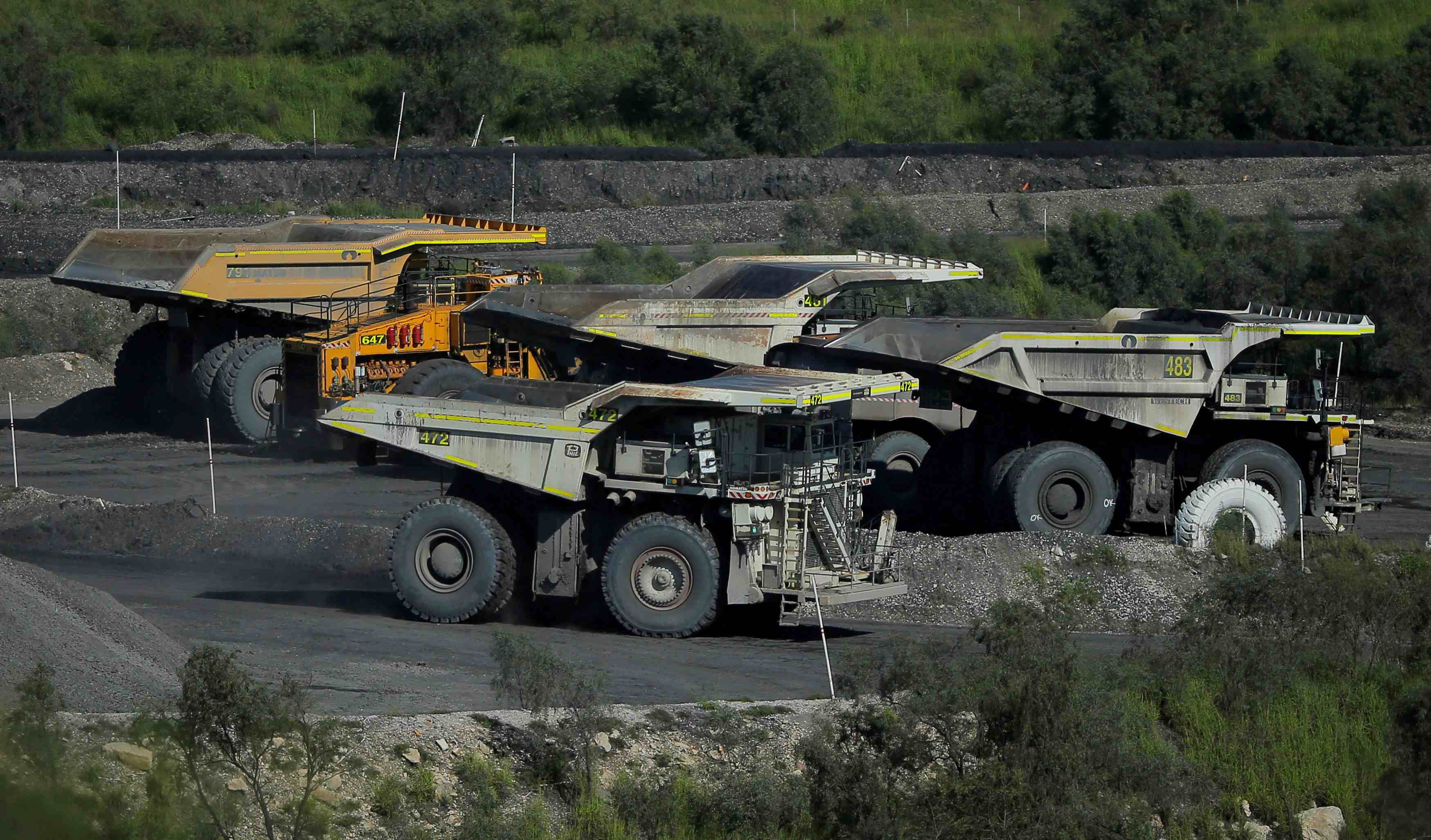
World
16:03, 18-Oct-2017
Mining giant Rio Tinto, two former executives charged with fraud
CGTN

Anglo-Australian mining giant Rio Tinto and two of its former top executives were charged with fraud by US authorities on Wednesday, accused of inflating the value of the company's Mozambique coal assets and failing to disclose mounting losses.
The world's second biggest miner vowed to "vigorously" defend the allegations, while announcing it had separately settled a case with Britain's Financial Conduct Authority about the timing of writing down the same projects.
Under that arrangement, Rio was fined 27.35 million pounds (36 million US dollars) for breaching disclosure and transparency rules by failing to carry out an impairment review in a timely manner.

This combination of two photos show Rio Tinto's former chief financial officer Guy Elliott (left) and former chief executive Tom Albanese. /Reuters and AP Photos
This combination of two photos show Rio Tinto's former chief financial officer Guy Elliott (left) and former chief executive Tom Albanese. /Reuters and AP Photos
The US complaint was filed by the Securities and Exchange Commission in a Manhattan court, with Rio, its former chief executive Tom Albanese and ex-chief financial officer Guy Elliott facing claims that they failed to follow accounting standards and company policies.
The Anglo-Australian giant bought its Mozambique assets for 3.7 billion US dollars in 2011 and sold them for just 50 million US dollars three years later, forced to write off three billion US dollars from its value.
Albanese ultimately lost his job over the issue.
The SEC contends the company failed to accurately value the acquisition and hid or delayed disclosure of the mounting losses.
"As alleged in our complaint, Rio Tinto's top executives allegedly breached their disclosure obligations and corporate duties by hiding from their board, auditor, and investors the crucial fact that a multi-billion dollar transaction was a failure," said the SEC's co-director of its Enforcement Division Stephanie Avakian.

A coal truck passes others inside coal giant Rio Tinto's Hunter Valley operations in Lemington, north of Sydney, Australia, on April 9, 2017. /Reuters Photo
A coal truck passes others inside coal giant Rio Tinto's Hunter Valley operations in Lemington, north of Sydney, Australia, on April 9, 2017. /Reuters Photo
Fellow co-director Steven Peikin added in a statement: "Rio Tinto and its top executives allegedly failed to come clean about an unsuccessful deal that was made under their watch.
"They tried to save their own careers at the expense of investors by hiding the truth."
Rio Tinto plc, Rio Tinto Limited, Albanese, and Elliott are charged with violating the antifraud, reporting, books and records and internal controls provisions of US federal securities laws.
The regulator is seeking injunctions, a return of "allegedly ill-gotten gains plus interest," and civil penalties. It also wants Albanese and Elliott banned from serving as public company officers or directors.
'No truth'
According to the SEC's complaint, Rio acquired the Mozambique projects shortly after disclosing huge losses at its previous large-scale acquisition, Alcan.
Both took place under Albanese's leadership.
It claims the African asset failed as it was based on the incorrect assumption that Rio could inexpensively mine, transport, and sell large quantities of high-quality coal, chiefly using barges for shipping.
The SEC argued it suffered setbacks almost immediately, as Rio, Albanese, and Elliott learned there was less coal and of lower quality than expected, and Mozambique had rejected its barge application.

A woman crosses a railway line at Dondo, about 20km (12.4 miles) from Beira port, Mozambique, on February 14, 2013. The Anglo-Australian mining giant Rio Tinto bought its Mozambique assets for 3.7 billion US dollars in 2011 and sold them for just 50 million US dollars three years later. /Reuters Photo
A woman crosses a railway line at Dondo, about 20km (12.4 miles) from Beira port, Mozambique, on February 14, 2013. The Anglo-Australian mining giant Rio Tinto bought its Mozambique assets for 3.7 billion US dollars in 2011 and sold them for just 50 million US dollars three years later. /Reuters Photo
After already impairing Alcan, Rio, Albanese, and Elliott knew that publicly disclosing a second failure would call into question their ability to pursue other long-term, low-cost, and highly-profitable mining assets, it charged.
Instead, they are accused of concealing the problems, allowing the company to release misleading financial statements days before a series of US debt offerings.
The alleged fraud was uncovered when another executive noticed the assets were being carried at an inflated value on Rio's financial statements, triggering an internal review, the SEC said.
Rio, whose shares were slightly higher at 71.58 Australian dollars in afternoon trade in Australia, said the case was flawed.
"Rio Tinto believes that the SEC case is unwarranted and that, when all the facts are considered by the court, or if necessary by a jury, the SEC's claims will be rejected," it said in a statement.
Albanese also denied the claims, saying "there is no truth in any of these charges."
"I echo Rio Tinto's confidence that these will be proved baseless in court," broadcaster ABC cited him as saying, while a spokesman for Elliott said he too "refutes these charges."
(Top photo: Workers walk near a cargo ship at the Beira port in Mozambique, on February 15, 2013. /Reuters)
Source(s): AFP

SITEMAP
Copyright © 2018 CGTN. Beijing ICP prepared NO.16065310-3
Copyright © 2018 CGTN. Beijing ICP prepared NO.16065310-3